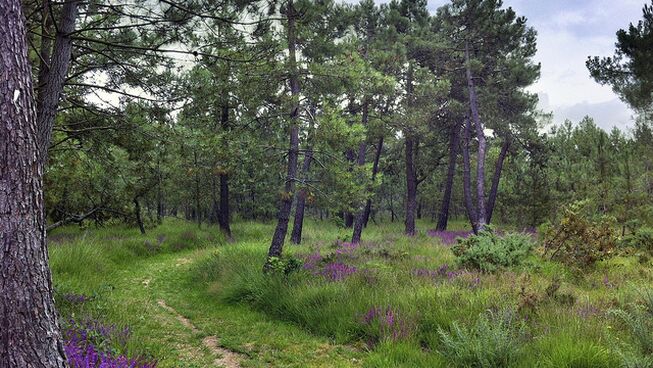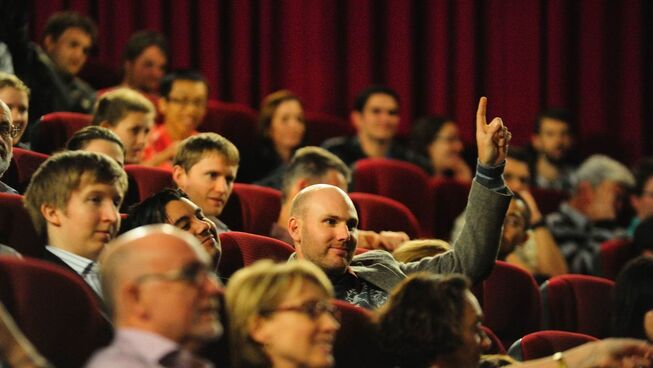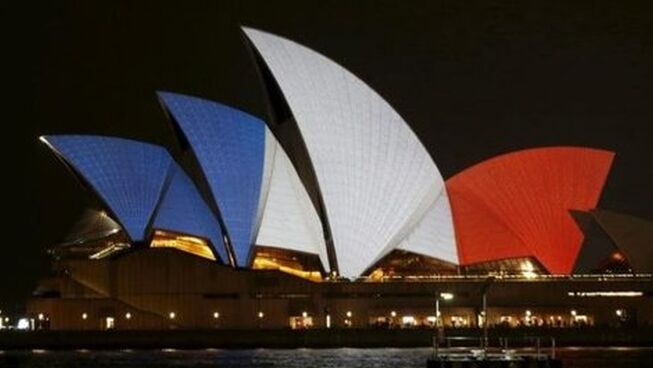Are our Aussie secular views a good place to hide?

By Glenn Hohnberg, Director of City Bible Forum in Brisbane
A Good Place to Hide by Peter Grose is a terrific book which portrays the true story of how a few villages of French people, led by their Christian pastors, hid thousands of Jewish men, women, and children during World War II. This is a timely book for it exposes that mere slogans about the value of humanity are not enough to sustain the love for humanity in the face of terror and upheaval.
In the book, Peter explores when the Nazis had invaded France and ruled the southern part of France under the Vichy government. France the land of liberty, fraternity, equality. The land of the Enlightenment, where all people were free, all people were bound by bonds of brotherhood and all people were equal.
But many of these enlightened people handed over Jews by the thousands to their German occupiers. They broke their bond of brotherhood with Jewish people. They stood to lose so much from the Germans and gain so much by their Jewish brothers and sisters disappearing. Some of the French stood to gain the homes and businesses of their Jewish neighbours. Fraternity, liberty and equality were swept away by fear, avarice, petty revenge, and greed. And what’s more not only did many of the French hand over their Jewish neighbours to the German invaders, but many also threw their lot in with the Germans, enabling the Nazi war machine to more effectively attack England.
The enlightenment philosophy of France had rejected God and gone with the slogans of freedom, equality and brotherhood. But the reality of war exposed the fragility of the philosophy behind the slogans. They said that all men (and women?) were free, brothers and equal. These seemed self-evident. (Surely, it is self-evident the cry goes up.)
And so it is, of course, until I have to choose between my freedom and yours, my right to food and shelter and your right to the same. When I have to choose between protecting those that I love and protecting those I don't actually know. When this happens what seemed so self-evident then becomes a very difficult decision.
Once the French had discarded their Judeo-Christian heritage with its view that all men and women are made in the image of God, liberty, fraternity and equality became very hard to sustain. And in this they were being consistent. For if humanity arose out of some primordial chaos on what basis should men or women be free?
Why should all people be treated as equal?
What makes the assertion true that we all share a bond of brotherhood?
And if evil threatens why should I risk myself or my freedom, security and comfort for yours?
This is no mere historical question. In the same way that the philosophies of the enlightenment were no match for human evil, so too our Aussie secular and materialist philosophies are no match for what is known as radical Islam. In the west, we’ve taught our young men and women that humanity is not special; at best we are a sophisticated accident of the cosmos. So why are we are bewildered when Islam’s call to kill others wins through and finds fertile ground? We’ve rejected the idea of God as a righteous judge who hates evil. So why are we surprised when evil is not resisted but indeed celebrated? We’ve taught our young men and women that life has no purpose other than to be happy (and what a rather weak, vague, and empty purpose it is!)
So why are we shocked when even Islamic State’s dark and evil purposes appeal?
We need an understanding of human life that will enable us to resist evil and value human life. For philosophies that do not value human life will reap a whirlwind of destruction and evil. This book reveals just such a world-view that enabled life to be valued and evil to be resisted. The ordinary French villagers saved thousands of lives during World War II. They resisted evil and deeply cared for the lives of the despised Jews even at cost to themselves. They did this because they were shaped by Christianity.
When southern France fell to the Germans, pastor Andre Trocme preached these words to his Christian congregation in the French Villages:
To love, to forgive, to show kindness to our enemies, that is our duty. But we must do our duty without conceding defeat, without servility, without cowardice. We will resist when our enemies demand that we act in ways that go against the teachings of the Gospel. We will resist without fear, without pride and without hatred. But this moral resistance is not possible without a clean break from the selfishness that for a long time has ruled our lives. We face a period of suffering, perhaps even shortages of food. We have all more or less worshipped money; we have all basked in the selfish comforts of our close family, in easy pleasure, in idle drinking. We will now be made to do without many things. We will be tempted to play our own selfish game, to cling on to what we have, to be better off than our brothers. Let us abandon, brothers and sisters, our pride and our egotism, our love of money and our faith in material possessions, and learn to trust God in Heaven, both today and tomorrow, to bring us our daily bread, and to share that bread with our brothers and sisters. [1]
And so, under his leadership and with other Christian pastors the French villagers made their homes refuges for thousands of Jews. They fed them, clothed them and hid from the Nazis and Nazi sympathisers. They helped these Jews escape over the borders and they smuggled in money to sustain the operation. Trocme was a pacifist who wanted to resist evil and save lives. This was all driven by his understanding of the Christian message.
The value of human life is clear in Christianity. From the start in the accounts of Creation it is clear every person is of infinite value for they are made in the image of God, and God will hold to account anyone who sheds the blood of another. It is clear when we carefully read the Old Testament narratives. It is also clear from the accounts and reflections on Jesus' death on the cross. In his death, Jesus showed that despite our enmity towards God, he values each human so much he is willing to sacrifice his life for each one of us.The cross of Jesus shows us God values each one of us more than we can understand.
And we also see in Christianity a model for resistance to evil. Again, though we can find this throughout the Bible it is especially clear in the life and death of Jesus. He always resisted evil without perpetrating evil. And this is especially true in his death. In a moment that changed forever what it means to resist Jesus choose to die to resist and overturn evil by going to the cross. In this seeming submission to evil , his death broke the power of evil in the world. This model of sacrificial resistance to evil is what fuelled Andre Trocme.
In Jesus, we find a place to resist evil and and care for others in the face of chaos, evil and terror.
Contact us to find out more about what Christians believe.
Join us at our public Forums in Brisbane to ask questions
_________________________________________________________________________
[1] Grose, Peter (2014) A Good Place to Hide Allen & Unwin, Sydney. p 42
A forest in France: Photo by Guy taking Pictures: flickr.com/photos/80901381@N04/ Creative Commons.



